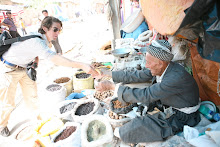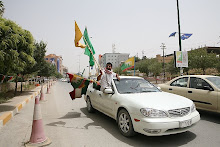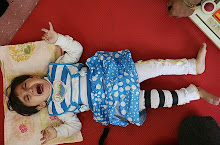As fighter jets tear overhead and torrential rain blankets
the region, we are ever more aware of the situation into which we go. Sitting
just a few miles from the Syrian border, Antakya is our last stop before crossing
into the unknown. It’s our last chance for a proper meal and a real bed; our
last chance to check our gear, and our last chance to turn back. Though neither
of us intends to…
Jutting down into Syria this part of Turkey thrives off
trade with it’s troublesome neighbour, and with a relatively porous border, we are
told that Syrian spies are everywhere. This has made it hard for us, as we meet
fixers, smugglers, and members of the FSA, whose families are all at risk should
they be caught. It is hard to know who to trust, and what to believe, but we
have worked slowly and safely and only with those who can be vouched for.
Thanks to the long and porous border however we will be able
to cross, and at the moment we are evaluating the options. I can’t name them
here, but they involve a late night crawl under the noses of Syrian and Turkish border
guards; on horseback and belly, under barbed wire and over walls. Once inside
we will be met by a network of activists and taken deeper in.
Unlike Libya, which was swamped with journalists, this
conflict seems largely untouched. We expected a media frenzy but have found
only a few other journalists, and by coincidence a number of them are friends.
There are a few reasons I would say press is thin on the
ground – though ultimately it’s because of the increased levels of danger. First of all there is no ‘safe zone’ (as
there was in Benghazzi), and no no-fly zone. The rebels are vastly outnumbered
and outgunned, the army is not deserting at the same rate as they were in
Libya, and the opposition is deeply fractured. Going in therefore means doing so with the underdogs - and the threat of being caught is very real.
Reports reaching us from inside the country suggest that the
ceasefire is slipping away – but there’s little surprise there. Gunships are
rumoured to have strafed towns in Idlib province and the Shabiha death squads
still roam the countryside. Shelling continues in Homs and demonstrations in
Aleppo are being crushed.
It is very clear that this is the most complicated yet of
the Arab spring conflicts, and a few main factors are at play. Iran is trying
to increase it’s regional sphere of influence and losing an allied Syria would be a huge
blow. Iran also needs Syria to supply weapons to Hezbollah so will do what it can to keep Assad in power.
Russia is also in a pivotal role and has a number of trade
deals with Syria – weapons and oil. It also has it’s only naval base outside
the ex-ussr here, and are very happy with the status quo.
At the same time, they have been on the wrong side of a
few conflicts recently, namely Libya and Iraq, and in doing so have missed out on huge post-war contracts. It is possible therefore that their
stance will change if the tide turns against Assad, and their recent
meeting with Syrian opposition groups suggests they are willing to
keep options open. I believe they must be lobbied and pressured by the international community to do so or else there can be no UN resolution.
America and France, who led in Libya, will do nothing till after their elections,
and while Saudi Arabia and Qatar are rumoured to be giving money and weapons, nobody knows where it goes, and there is no evidence of it on the ground. Until these other states get involved Assad will
have an easy task.
Meanwhile here in Antakya, we wait and watch, and our only
danger is being pelted by street urchins. I will continue to write until we go in..














































